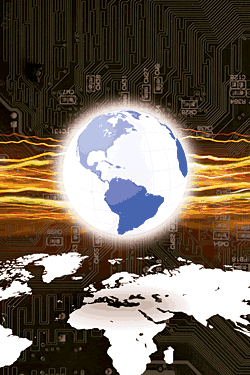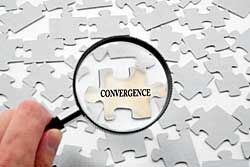
PHYSICAL security is an essential part of protecting a company’s mission-critical assets and information. Fortunately, it is a mature industry sector. While many understand the value of locked doors, cameras, alarms and security guards, However, physical security becomes more complicated when you start to look at how modern technology has changed the computer industry.
- By Tim Cranny, Ph.D., CISSP
- Apr 04, 2007

TO take advantage of the powerful and ubiquitous TCP/IP communication platform, manufacturers of security products such as network video cameras, gate access controllers, biometric scanners, perimeter fencing systems and mobile covert monitoring solutions are gradually migrating analog-based products to a digital Ethernet platform. Unfortunately, in many cases, a wire-line network connection is not available at all locations required in the facility. So wireless alternatives are increasingly becoming more prevalent to deploy Ethernet devices.
With the dramatic increase in the use of wireless technologies in the past five years, unlicensed radio spectrum is becoming increasingly overcrowded in many urban areas. A wireless system that’s installed today and functions well can fail dramatically next week, next month or next year, simply as a result of multiple products operating at the same radio frequency.
- By Ray Shilling
- Apr 03, 2007

AS the security industry and those it serves evolve, it is no longer a question of whether you should switch to an IP video system—it is when you should switch over to IP video. Face it, it’s not just a digital world, it’s a network world, as well. In many cases, this is a result of technology crawl. For instance, you can still do your word processing with Word Star, the program you probably used when you first installed your analog CCTV system.
- By Mark S. Bavousett, CPP
- Mar 06, 2007

The convergence of physical security and IP networks opens up opportunities for security operations personnel to better protect assets and people. But to take advantage of the opportunities, security operations must do away with fear, uncertainty and doubt that often surround running physical security on a IP network.
- By Bob Beliles
- Mar 05, 2007
AT the most basic level, there are just two types of security: physical security to protect people and assets, and information security to protect bits and bytes in data systems. And, information security products are generally more intelligent than physical security products.
- By Mark Mills
- Feb 06, 2007
RECENTLY, security dealers and integrators in the access control industry have seen a great shake-up. Widespread demand and overall adoption of IP-compatible devices has, in many cases, introduced security dealers to the IT world for the first time.
- By Steve Dentinger
- Jan 24, 2007
BANKS and larger financial institutions are interested in making the most of the newest security technologies and analytical software solutions to better protect assets, employees and customers.
- By Security Products Staff
- Jan 24, 2007
IN the last 10 years, the background screening industry has grown tremendously and has moved from being a process used for security clearance, law enforcement and high-level, sensitive government jobs to an integral part of the hiring process of the vast majority of firms in the United States. Beth Miller of DataCheck Inc., located in San Clemente, Calif., said it best, as "more and more companies are conducting background screenings, it is becoming an everyday process and part of the norm."
- By W. Barry Nixon
- Jan 23, 2007
Multiple technology methods implemented to meet standards
- By Rod Starrett
- Jan 23, 2007
IN an age of rapid change in both security and technology, the term convergence continues to be the buzzword of the moment.
- By Brent Dirks
- Jan 03, 2007
AS federal and state governments look for ways to ensure workers' identity, identification cards have come to be a hot topic. In addition to protecting physical assets -- buildings, infrastructure and other facilities -- government officials also are interested in maintaining the integrity of their computer networks.
- By Paul Brisgone
- Dec 01, 2006
IN a typical IT environment, heterogeneity is the standard -- in server operating systems, in database platforms and in software applications running on those servers.
- By Richard Hyatt
- Nov 01, 2006
WHETHER your job is to protect the local streets, the country or a company's assets -- the job has never been more challenging.
- By Tony Lapolito
- Nov 01, 2006
ONE of the biggest buzzwords in the security market in the past few years has been convergence -- the tying together of physical access and logical access technologies which have existed in parallel worlds.
- By Geoff Hogan
- Nov 01, 2006
ADVANCEMENTS in removable media, online storage and file sharing have empowered end users to transmit, collect and access data from virtually any location both inside and outside the corporate network.
OVER the years, corporate departments have learned how to increase efficiency and value by leveraging the assets of the corporate IT infrastructure.
- By Bob McCarthy
- Sep 01, 2006
- By Jerry Cordasco, Jeff Brummett
- Jun 01, 2006
THE rate of convergence of information technology and physical security continues to accelerate. One point of this convergence has largely been communications networking technology. Many physical security networks have moved from proprietary protocols to open standard Ethernet and TCP/IP.
- By Mance Harmon
- Jun 01, 2006